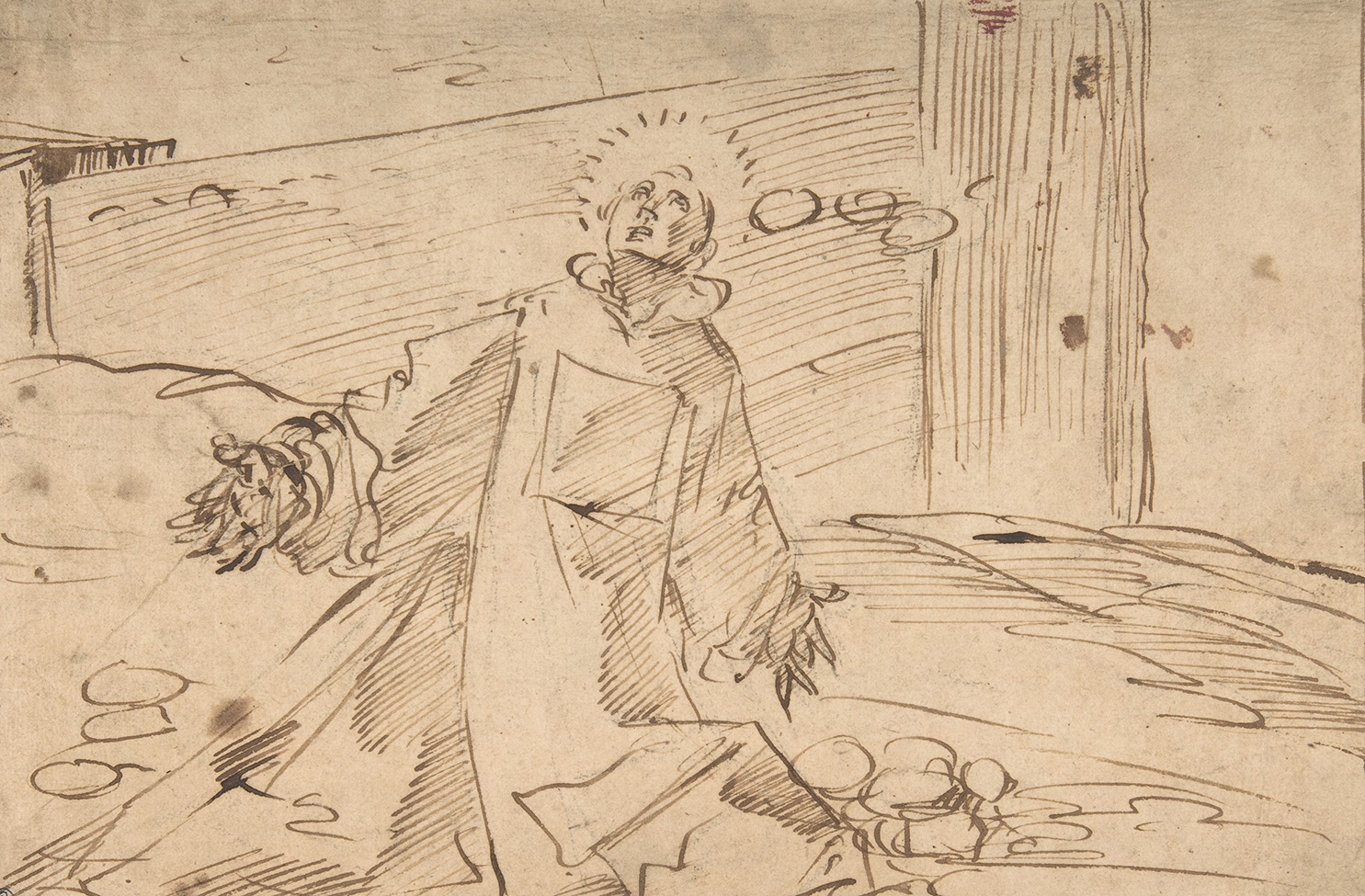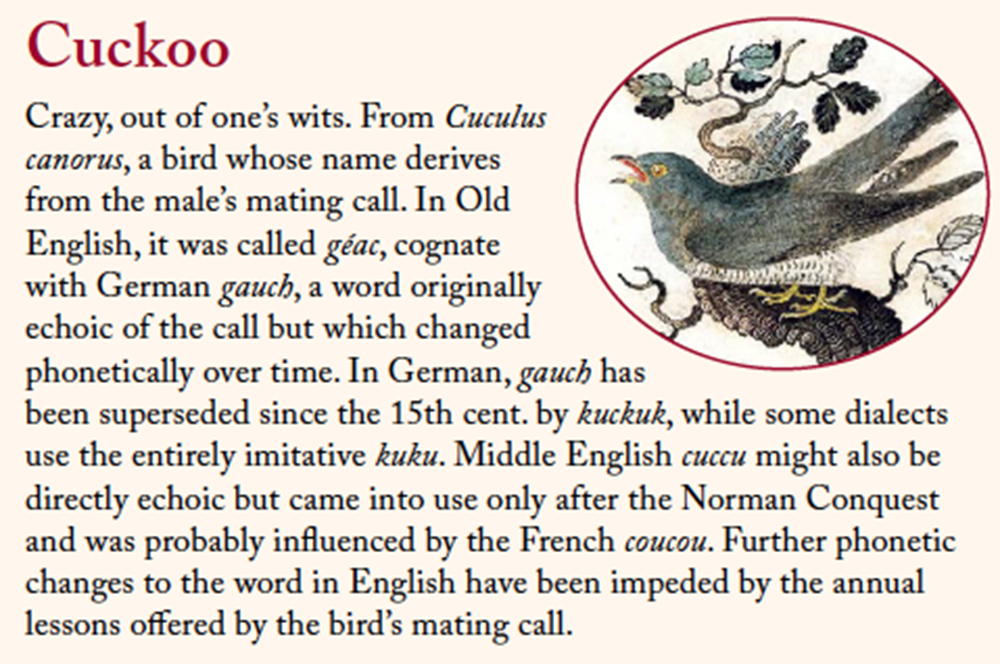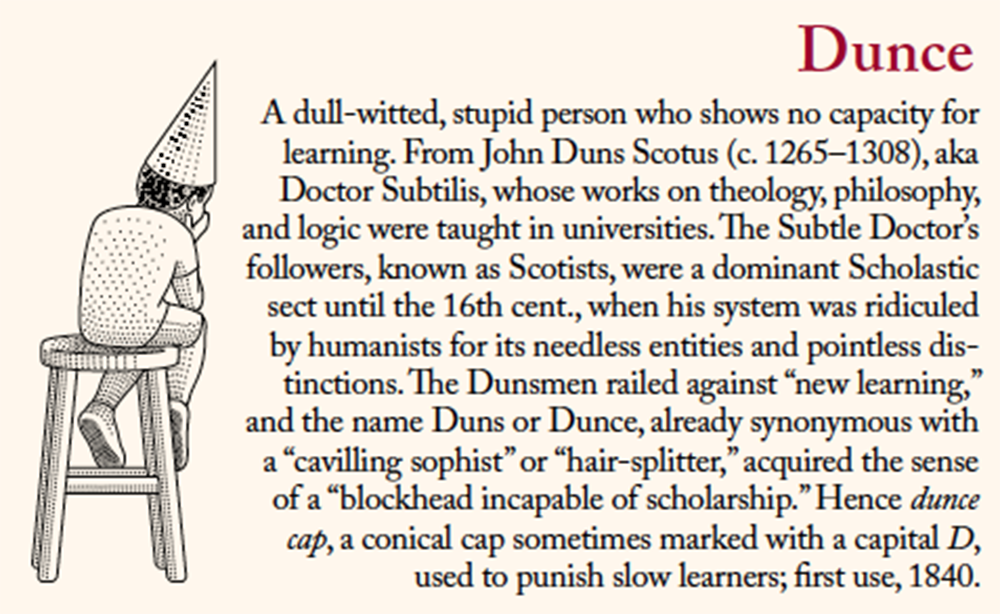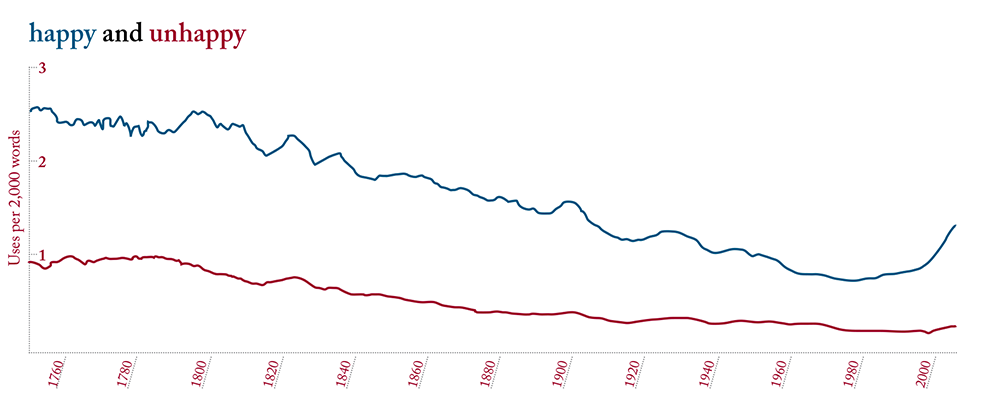
A Saint in Ecstasy, c. 1500. The Metropolitan Museum of Art, Rogers Fund, 1953.
addlepate: A person whose mind is muddled; a stupid or contemptible person. From Old English addle, urine, liquid dung, mire, and Middle English pate, head, skull.
agita: A feeling of annoyance, upset. From Neapolitan pronunciation of Italian acido, acid indigestion.
amygdala: One of the four basal ganglia in each cerebral hemisphere; involved with the control of motivation and aggression. From Latin amygdala, Greek ἀµυγδάλη, almond; probably extended through Old French amygdale and medieval Latin amygdala, tonsil.
Anton’s syndrome: A disorder in which a patient blinded by damage to the cerebral cortex claims to be able to see. Named for Gabriel Anton (1858–1933), the Austrian neurologist who first diagnosed it.
berserk: Frenzied, madly violent; esp. to go berserk. From berserker, a Norse warrior of great courage who fights with ferocity and rage; from Icelandic berserkr, probably equivalent to bear-sark, bear-coat. Samuel Ödmann’s Attempt to Explain the Berserk Raging of Ancient Nordic Warriors (1784) claims berserkers ate the mushroom Amanita muscaria to produce their rages.
brain fog: An impediment to thinking clearly; an inability to concentrate or remember (1853).
brain trains: A British train line that runs from Oxford to Cambridge via Bletchley.
calm: Freedom from agitation or disturbance. In Old Spanish and Portuguese calma also means “heat of the day,” which leads to the possible meaning of calm developing from “a rest during the heat of the day, quiet, stillness.”

delire: To go astray from reason; to wander in mind, to be delirious or mad, to rave. From Latin dēlīrāre, out of one’s wits; originally, to go out of the furrow; from de-, off, away, and līra, ridge, furrow, in plowing; compare French délirer, “to dote, rave, do things against reason.”—Randle Cotgrave, Dict. of the French and English Tongues
dhyana: ध्यान A profound meditation constituting the seventh in the series of cultivated states of mind; “that which burns up evil desire, or the cleaving to existence.” Primarily a Buddhist concept but also used in Jainism and Hinduism.
disposition: A natural tendency or bent of the mind, esp. in relation to moral or social qualities; a mental constitution or temperament. Possibly of astrological origin, as in the description of dispositions as saturnine, jovial, martial, venereal, mercurial.
ecstasy: A state of being beyond reason and self-control. From Greek ἔκστασις, insanity, bewilderment; the meaning was later applied to the soul’s withdrawal from the body, or a mystic or prophetic trance (applied vaguely by ancient writers to all morbid states characterized by unconsciousness, such as swoon, trance, catalepsy, etc.). Also Greek ἐξιστάναι, to put out of place, ἐξιστάναι ϕρενῶν, to drive a person out of his wits.
entheogen: A psychoactive substance used in shamanic rituals or to induce spiritual experiences. Apparently coined in 1979 as an alternative to hallucinogen and psychedelic, terms that were perceived to have negative connotations.
enturbulation: An agitated or disturbed state of mind. Coined by L. Ron Hubbard and subsequently used by Scientologists.

ergotism: A disease, also known as St. Anthony’s fire or ignis sacer, caused by eating bread made from flour contaminated by ergot fungus (Claviceps purpurea), which contains an alkaloid similar to LSD. Some attribute St. Vitus’ dance, or dancing mania, to peasants’ consumption of ergot-infested rye.
fathom: To comprehend, to get to the bottom of something, to thoroughly understand. From Old English fæðmian, to encircle with extended arms, to clasp or embrace, to measure by means of two outstretched arms (hence, also, a measure of six feet); from Old High German fademôn, Old Norse faþma.
fool: A person lacking in common powers of understanding. From Anglo-French fol, Late Latin follis, bellows, bag.
fugue: A flight from identity, often involving travel to an unconsciously desired locality; a dissociative reaction to shock or emotional stress in a neurotic, during which an awareness of identity is lost. On recovery, memory of events during the state is repressed but may become conscious under hypnosis or psychoanalysis. From French fugue, Latin fuga; related to fugěre, to flee.
happy dust: Cocaine.
master in lunacy: A British officer of the lord chancellor who investigates the mental condition of people alleged to be insane and makes orders dealing with their persons and estates of lunatics.
mind: “A mysterious form of matter secreted by the brain. Its chief activity consists in the endeavor to ascertain its own nature, the futility of the attempt being due to the fact that it has nothing but itself to know itself with.”—Ambrose Bierce, The Devil’s Dictionary
obtundation: A state characterized by a reduced level of consciousness with a diminished responsiveness to stimuli, typically at a level between lethargy and stupor.
sad: A feeling of sorrow or regret. From the same Indo-European base as Latin sat, satis, enough, satur, satisfied, full, Early Irish sáith, sufficiency. In English, “having had one’s fill, satisfied” is now often expressed by words that are derived from the Latin satis. Sad was perhaps attested early as a surname (sense uncertain): Henricus Sadde (1222), Ralph Sad (1273).

saudade: Portuguese for longing, melancholy; the relationship of the human condition to temporality; said to be characteristic of the Portuguese soul. Possibly from Latin solitates, solitudes, or Arabic saudaui, melancholy, saudá, black bile, sadness.
shame: A painful emotion arising from the awareness of something dishonoring, ridiculous, or indecorous in one’s conduct. Possibly derived from pre-Germanic skem-, variant of kem-, to cover (covering oneself being the natural expression of shame).
sorrow: “The uneasiness or pain of mind which is produced by the loss of any good, or of frustrated hopes of good, or expected loss of happiness.”—Noah Webster, American Dict. of the Eng. Language (1828)
tantrum: An outburst or display of petulance or ill-temper; a fit of passion. Origin uncertain; first use (tanterum), 1714. “If we’d still been children, I might have been throwing stones at him in a tantrum.”—Nadine Gordimer, Burger’s Daughter
verklempt: Overwhelmed with emotion. From Yiddish farklemt, grieving; past participle of farklemen, to grip; from Old High German firklemmen, to press, squeeze; whence Old English clam, clom, bond, fetter.
Explore States of Mind, the Winter 2018 issue of Lapham’s Quarterly.